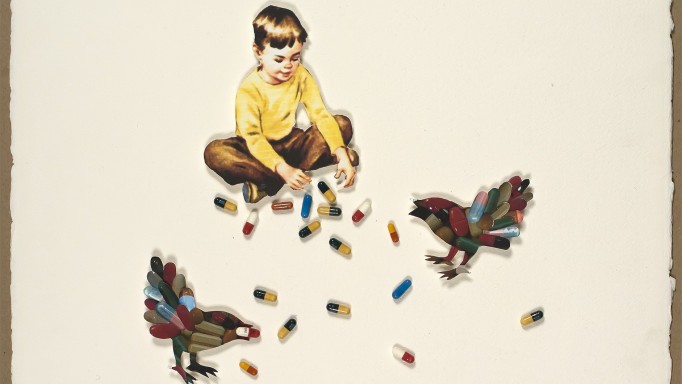Write a Comment
12 Comments
I very much appreciate your comment. I had written that the trial report indicated that Truvada PrEP with a relative risk reduction of 44% would not be of much use at a population level, This is very different from its use by individuals who have made an informed choice to use Truvada PrEP.. I'm unequivocally supportive of individuals who have considered their own situations and have made a decision to use PrEP.. .There are differences in thinking about interventions when rolled out on a wide scale as a public health measure and when they are used by individuals as a considered choice, taking that individuals particular circumstances into account.
while your comments about the 44% make sense, scientificially, and i can get my head around, barely, your subjective judgement of 44% as "useless" from that perspective as well, i am an individual. an individual in a very high risk population. some of that risk is under my control, some arguably is not. 44% is not useless to ME, the individual. i'm in control of my medications, of my compliance and adherence. the 44% number is meaningless only on an individual level, in fact! each individual is in control of their own chances of truvada/PrEP preventing HIV infection. i'm very lucky. at the time i joined a very high risk population, PrEP existed and i had access. learning this ended a couple of months of soul searching, faced with the choice that many have faced before of whether or not to accept seroconversion as my inevitable fate. that i was even weighing accepting my future seroconversion was an incredible turn of events, for me personally. as the process ended with my PrEP Rx, i never fully came to a decision. i have however had a great deal of conversations with people who concluded this process, most of which accepting their fate. some of them even hastened it. i was sure i would never hasten it but ... well i may very well have accepted it and moved on. this acceptance process that many go through is nearly impossible for most people to fathom. i used to be one of those people. most people would dismiss all of it, no duh, just change your behavior. that some of us can't, or won't, is an issue for debates and moralizations elsewhere. aside from that, even the best prevention intentions can be thwarted by accidents and even malice - has poz.com even covered the phenomenon of "stealthing"? i was at great risk of that, and have been the vicim of stealthers on at least two occasions. they way i look at my PrEP is as my inner layer of armor. my outer layer is my own choices, informed or otherwise. that layer can be penetrated (ha ha) at times by my own shortcomings (ha ha!) and failures, my own mistakes, and by the failures, mistakes, and most importantly ill intentions of others. i was not yet sure if i could live with myself for seroconverting due to my own failures and mistakes, but i did quickly conclude how i'd feel if the cause was out of my own control. that was the flash of light that drove me to seek and acquire PrEP. it was clear that i could live in fear, attempt to squelch and fight against who i really am and what makes me happy, and likely seroconvert anyway. or, i could increase my odds VERY dramatically, if not eliminate them as odds altogether. i'd be on truvada PrEP even if perfect compliance only yielded 44%, too.
It's true that drugs that generate no profits are unlikely to be developed - there are few (if any) organizations in our society that have the resources to do this. This was something I had hoped the CRIA would be able to raise funds to do and the aspirin trial actually is an appropriate example. Unfortunately our trial was stopped before we could obtain any meaningful information on HIV levels. The in vitro results with aspirin were a great encouragement. However I don't think high dose aspirin would be tolerated over a longer period, but there just may be safer alternatives. The benefits of aspirin in so many conditions you mention were I believe achieved with a lower dose, and it's quite likely that lower dose aspirin, if studied would prove to be beneficial in HIV infection as an anti-inflammatory agent, even if not directly antiviral at the lower dose..
Well, as we all know, HAART therapy is hardly without its own side effects. Gastrointestinal bleeding can easily be countered with coating the aspirin and using a GI protective agent. It would seem to me that there really was no interest in developing it due to how cheap it is. I can get a 1 year supply of aspirin for $4 at my local Costco. If I were HIV+, I would surely take some GI bleeding over lipoatrophy/dystrophy, liver toxicity, CNS toxicities, etc. Aspirin, in many longitudinal studies, has been shown the reduce the risk of different types of dementia, certain cancers, heart attack and stroke, and many other things. Things that people with HIV that tend have to deal with that HAART generally can not help with or even makes worse. So even if aspirin did not help to reduce the HIV viral load, it would still be of an advantage to people with HIV who are at increased risk of developing dementia, cancer, and heart disease than their HIV- counterparts. I sometimes wonder whether or not looking at the viral load and CD4 cells are the best measurements of health in persons with HIV. People with undetectable viral loads still are unable to develop dementia. I think blood markers of inflammation should also be measured at the same time. I was diagnosed with Type II Diabetes about a decade ago. I have since worked to reverse the disease. But about 5 years ago I read an abstract where people with diabetes were given 7 grams of aspirin for a week or two to see if it lowered their blood glucose and other markers and it did. There were no GI effects during this short study, but I would imagine with longer studies there would have been. But it actually worked for me. It brought my fasting blood glucose down by about 35%.
Dear Ms Torres, We did indeed try to study the effects of aspirin on HIV replication. Dr Kotler at St Luke's-Roosevelt in New York had observed an effect of salicylates on reducing HIV as detected by in situ hybridization in colon biopsies. Based on this I, with Elena Klein looked at the effect of acetylsalicylic acid on in vitro HIV replication. It was able to inhibit HIV replication in lymphocytes from HIV infected patients in mixed lymphocyte cultures, as well as inhibit TNF induced HIV replication in ACH-2 cells, in a dose dependent fashion in both cases. Aspirin was able to inhibit HIV replication by about 70% at a dose that represented tissue levels achieved in the treatment of rheumatic fever. This was about 150-300 mcg/ml. a high dose of aspirin that would not have been practical as a treatment. Based on these results I then wrote a protocol for a placebo controlled clinical trial. I can't remember the actual dose used but it would have been around 4G a day. I was then medical director of CRIA and that's where the trial was conducted. With IRB approval and informed consent, we enrolled about 5-6 individuals. All took sucralfate as well and great care as taken to monitor for GI bleeding. It was understood that this was a proof of concept trial. As was to be expected there was a small drop in haematocrit in some individuals, so I asked three investigators to unblind the results and advise me regarding continuation. Of course it was the treated individuals who showed a small haematocrit drop and I was advised to stop, although I disagreed with their decision I stopped the trial. I felt that we had a great opportunity to open a door to a new approach to treat HIV infection. With very close supervision, with full on-going consent, we might have been able to show that drugs of this sort - obviously not aspirin itself, might be developed as not only a directly acting anti-HIV agent, but also as an anti-inflammatory agent. This was a proof of concept trial, a collaboration of community researchers with their patients. I don't know what abstract you saw, I did send my in vitro aspirin results to the Yokohama AIDS conference as a poster and asked Dr Kotler to present them. So this is probably what you saw. I must have copies somewhere, maybe among my papers at the NY Public Library. Unfortunately there was some personal discord that resulted in a letter written by one of us and submitted to the Lancet being withdrawn. I was quite busy at the CRIA, in the lab, and seeing patients so in this case - as with some others, I never did write up the results, feeling that my poster at the AIDS conference should be enough. It certainly must have been seen by scientists, journalists and patient advocates. Coincidentally, during the conference there was a report in Science of the effect of aspirin in blocking the NFkappaB pathway - providing a basis for its anti HIV effect. I did not know this when I did the TNF/ACH-2 experiment! It's quite a sad story. Who knows what might have been developed in the almost 20 years since these observations were made. Thanks for your interest, With good wishes, Joseph Sonnabend
Dr. Sonnabend, I don't know if you still review these comments but I had no other way of contacting you. I am in a Master's programme attempting to earn Master's degree in Nursing. I am writing my thesis paper on the pathophysiology, cofactors, and treatment of AIDS. I know you are big on the idea of Co-factors. Anyway, I saw an abstract from back in 1994-1995 in which high doses of aspirin were being used to treat HIV but the study was stopped because of side effects. Do you happen to remember the dose that they were using? I would be most grateful if you could give me that information. Thank you, Ms. Torres
I'm so glad you posted this! As I keep hearing from people who've rented SEX POSITIVE on DVD, in more and more of the emails I'm receiving, people are expressing grave concerns that the coverage and almost lockstep cheer-leading about PrEP is overshadowing the continued need for safe sex education and practices at a time when education efforts are dwindling drastically. More has to be done but there are lots of ordinary, invisible people around the country who share your skepticism and concerns....R










Craig Allen
Organizations that devote their time to fighting HIV have decided that in spite of the fact that PrEP (basicly taking treatment for HIV as a means of preventing HIV) has been proven not to work in most cases, they have decided to go ahead and promote it as the way to prevent HIV, since people will not use condoms and proper condom use is the only method that actually works. (but we are no longer permitted to say that condoms work because it offends HIV+ people who want to continue having sex with HIV- people without condoms while insisting that they aren't participating in putting anyone else at risk) We have come to a place in this epidemic where advertizing of a cure has preceded the existence of a cure. Drug companies that provide the funding for the major HIV+ publications have decided to go ahead and pretend as if the cure is PrEP because they need a new cash cow,, even though everyone agrees it won't work against HIV or do anything for cancers caused by HPV, outbreaks of meningitis, or the antibiotic resistant strains of syphilis, and gonorrhea.
September 8, 2013